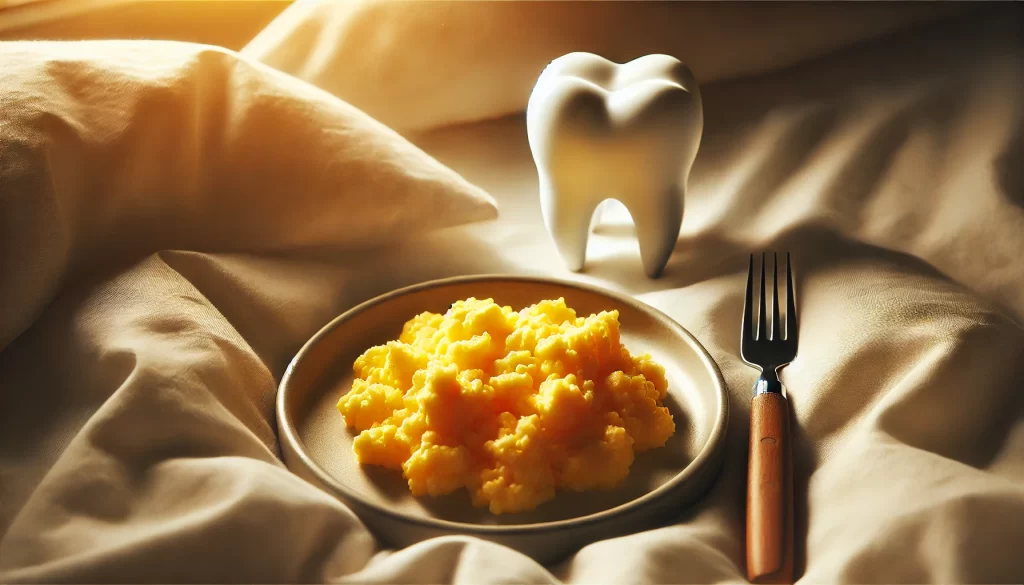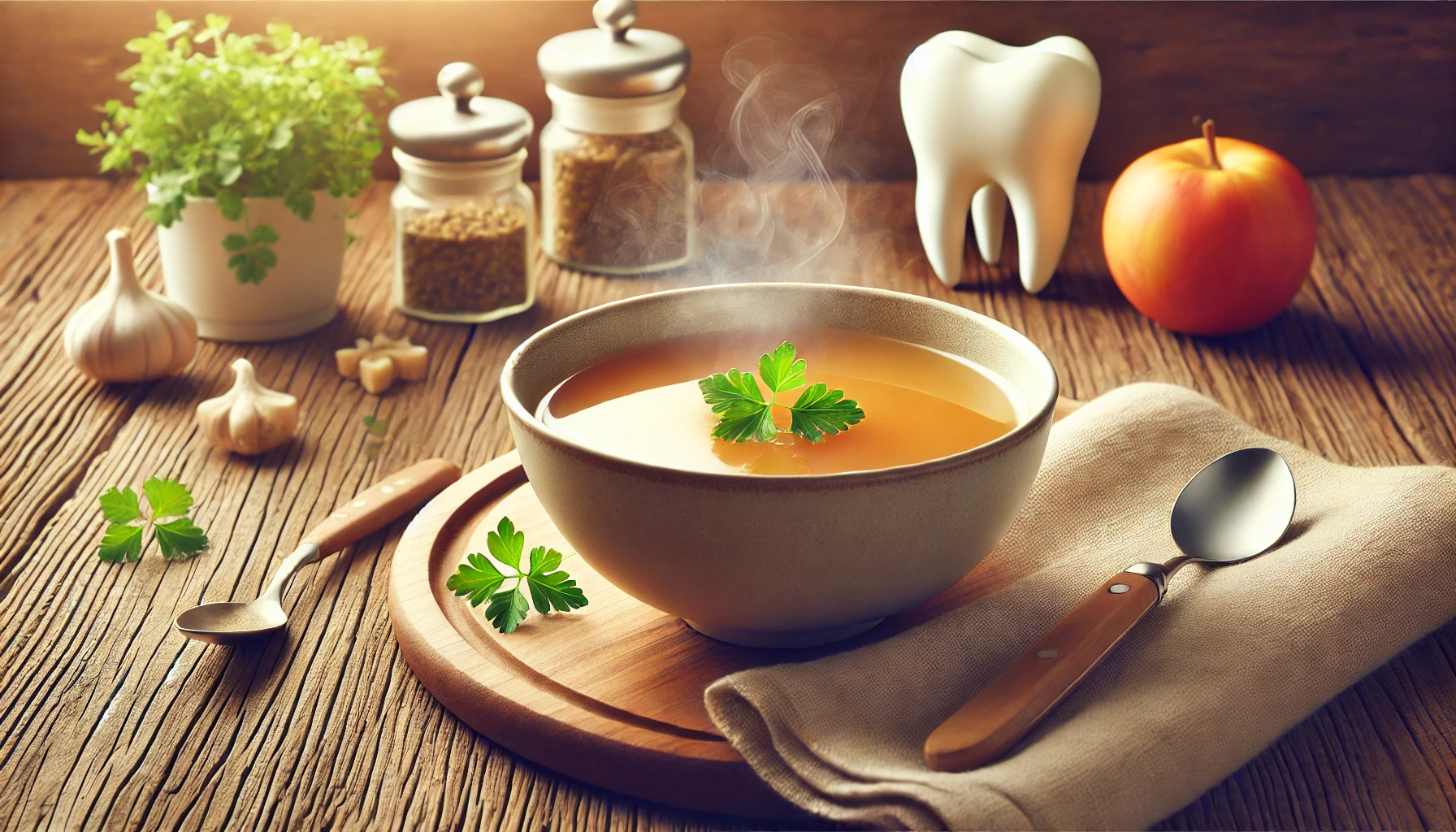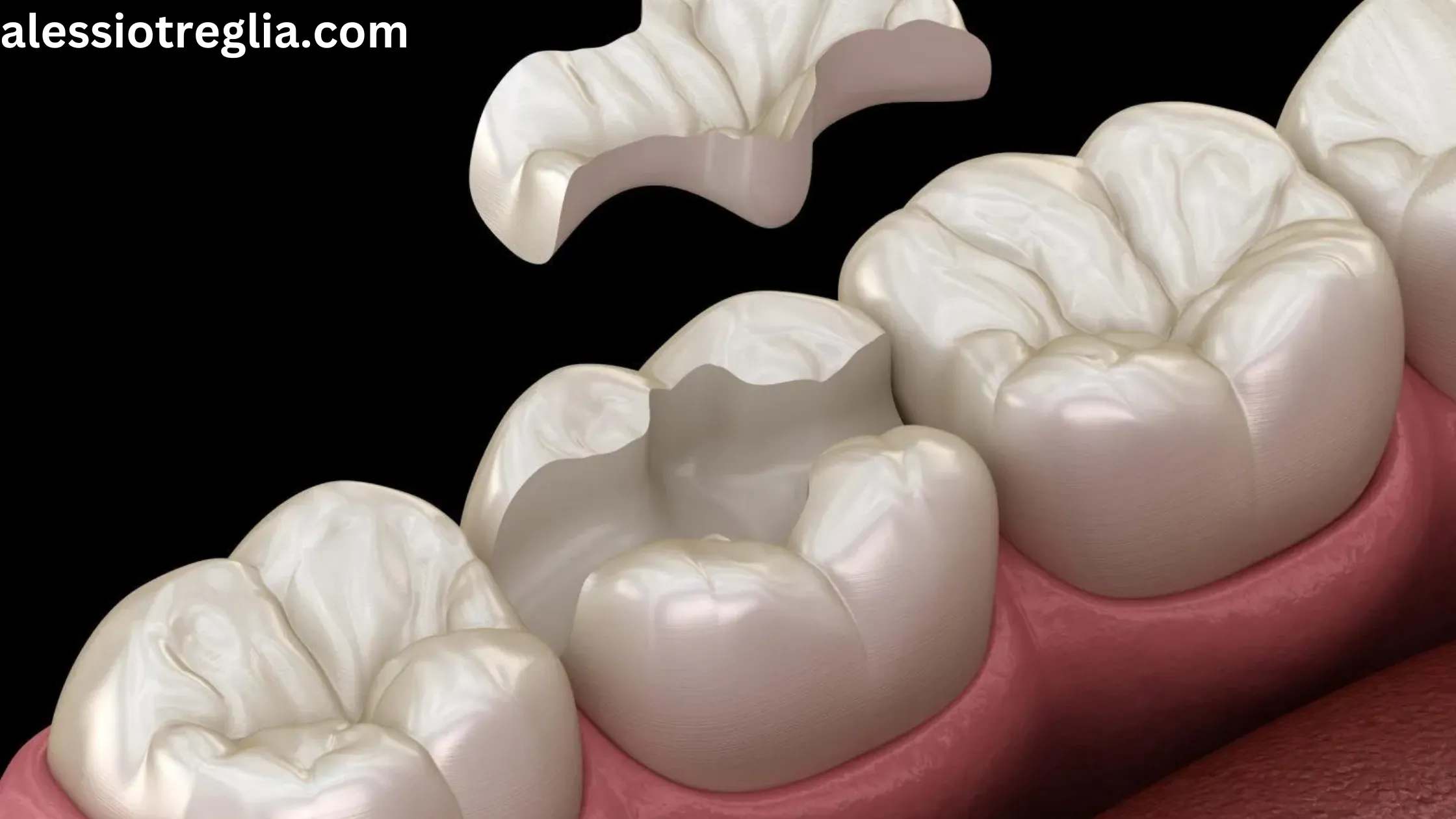What Food Can You Eat with an Abscessed Tooth? Safe & Soothing Options
Table of Contents
What Food Can You Eat with an Abscessed Tooth? Dealing with an abscessed tooth is painful, and choosing the right foods can make a significant difference in your comfort level. The sharp pain and sensitivity associated with an abscessed tooth can make eating a daunting task. You might wonder, “What food can you eat with an abscessed tooth?” In this article, we’ll explore safe and soothing food options to help you maintain your nutrition without aggravating the pain.
What Food Can You Eat with an Abscessed Tooth? Understanding an Abscessed Tooth

What Food Can You Eat with an Abscessed Tooth? Before diving into what foods suit an abscessed tooth, it’s essential to understand what this condition entails. An abscessed tooth occurs when a bacterial infection creates a pocket of pus within the tooth or the surrounding gum tissue. This condition often leads to intense pain, swelling, and sensitivity to hot or cold foods. While medical treatment is necessary to address the infection, choosing the right foods can help you manage pain and maintain your health until you can see a dentist.
Soft Foods to Eat with an Abscessed Tooth
When dealing with an abscessed tooth, soft foods are your best friend. These foods are easy to chew and swallow, minimizing the risk of further irritation. Consider these selections of soft foods:
Mashed Potatoes
What Food Can You Eat with an Abscessed Tooth? Mashed potatoes are an excellent choice when you have an abscessed tooth. They are soft, easy to eat, and can be made even more nutritious by adding some butter or cheese for extra calories. The warm, creamy texture of mashed potatoes can also provide a soothing effect, making them a comforting option.
Yoghurt
Yoghurt is another soft food that’s gentle on your teeth. It’s rich in probiotics, which can help support your immune system while you recover from the infection. Choose plain, unsweetened yoghurt to avoid added sugars that could worsen the disease.
Smoothies
What Food Can You Eat with an Abscessed Tooth? Smoothies are a great way to get your daily dose of fruits and vegetables without aggravating your tooth pain. You can blend soft fruits like bananas, berries, and even some leafy greens with dairy or plant-based milk to create a nutritious meal that’s easy to consume.
Scrambled Eggs
Soft, easily chewable, and high in protein are scrambled eggs. They can be cooked to a consistency that works for you, whether that’s super soft or slightly firmer. Eggs are also rich in nutrients, making them a valuable addition to your diet during this time.
Cold Foods for Relief

What Food Can You Eat with an Abscessed Tooth? Cold foods can relieve the throbbing pain of an abscessed tooth by numbing the affected area. Incorporating cold foods into your diet can be a simple way to manage discomfort.
Applesauce
What Food Can You Eat with an Abscessed Tooth? Applesauce is not only soft but also relaxed, making it a good option for soothing your tooth pain. It’s gentle on your teeth and can be eaten without much effort. To stay away from additional sugars, choose unsweetened applesauce.
Ice Cream
Who doesn’t love ice cream? While it might sound too good to be true, ice cream can be a great option if you’re dealing with an abscessed tooth. The cold temperature can numb the pain temporarily, providing much-needed relief. Just be sure to choose a flavour without nuts or other hard mix-ins that could irritate your tooth further.
Cold Soups
Cold soups like gazpacho can be a refreshing and nutritious option. They provide hydration and nutrients without the need for much chewing. Just ensure the soup is smooth and free of chunks that could cause discomfort.
Foods to Avoid with an Abscessed Tooth
While it’s important to know what food you can eat with an abscessed tooth, it’s equally crucial to be aware of what to avoid. Certain foods can worsen the pain or even exacerbate the infection.
Crunchy Foods
Crunchy foods like chips, crackers, or raw vegetables can be harsh on an abscessed tooth. The hard texture can cause additional irritation and pain, making it harder for you to eat.
Spicy Foods
Spicy foods can increase inflammation and exacerbate the pain associated with an abscessed tooth. It’s best to avoid anything with a lot of spice until the infection is treated and the pain subsides.
Sugary Foods and Drinks
Sugary foods and drinks are bad news when you have an abscessed tooth. Sugar can feed the bacteria in your mouth, potentially worsening the infection. Avoid candies, sodas, and other sweet treats until your tooth has healed.
Tips for Eating with an Abscessed Tooth

In addition to choosing the right foods, there are a few tips you can follow to make eating more manageable when you have an abscessed tooth.
Chew on the Opposite Side
If your abscessed tooth is on one side of your mouth, try to chew on the opposite side to avoid putting pressure on the affected tooth. This can help reduce pain and prevent further irritation.
Cut Food into Small Pieces
Cutting your food into small, bite-sized pieces can make eating easier without causing pain. This is especially helpful for foods that require more chewing.
Eat Slowly
What Food Can You Eat with an Abscessed Tooth? Taking your time while eating can help you avoid sudden movements that could trigger pain. Eating slowly also allows you to be more mindful of how your tooth feels and adjust your eating habits accordingly.
Also Read: Can You Be Allergic to a Person? The Shocking Truth Revealed
What Food Can You Eat with an Abscessed Tooth? Dealing with an abscessed tooth is challenging, but making thoughtful food choices can help you manage the pain and maintain your health. What Food Can You Eat with an Abscessed Tooth? By sticking to soft, cold, and soothing foods, you can find some relief while ensuring you get the nutrients your body needs. Remember, while these food choices can make eating more comfortable, it’s essential to seek medical treatment for an abscessed tooth as soon as possible. Proper dental care is crucial to prevent the infection from spreading and to ensure your long-term health.



